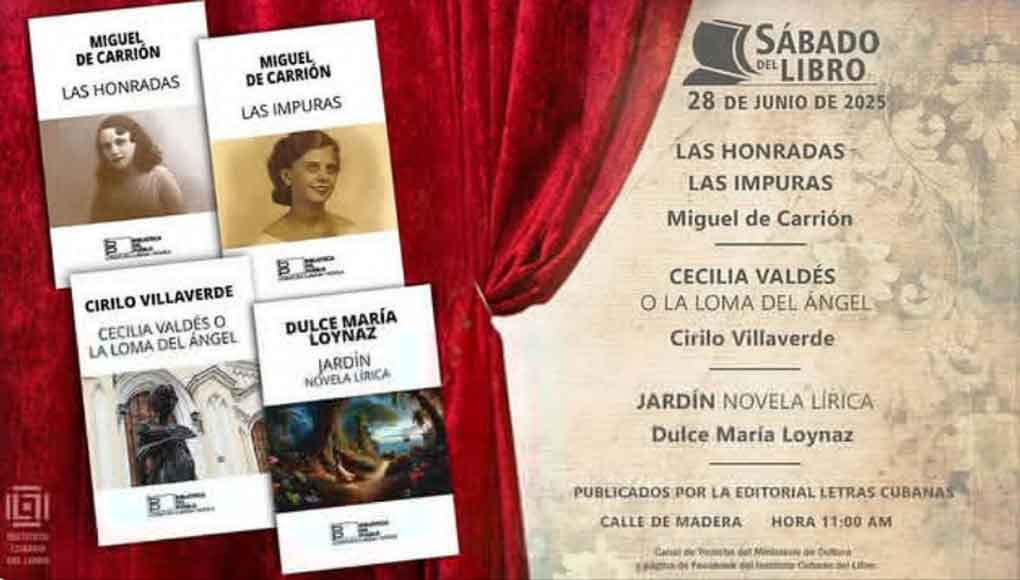
Havana, June 28th - The classics of Cuban literature Las Honradas (The Honorable Women), Las Impuras (The Impure Women), and Cecilia Valdés shine today through the masterful pages from the hands and pens of renowned authors of the island.
The traditional Sábado del Libro (Book Saturday) event pays tribute to the writers Miguel de Carrión (The Honorable Women and The Impure Women); Cirilo Villaverde (Cecilia Valdés) and also to the poet Dulce María Loynaz with her work Jardín (Garden), presenting these titles from the Letras Cubanas Publishing House.
Convened by the Cuban Book Institute, the customary literary gathering on Madera Street, in the Historic Center of Havana, honors these great authors and the realities of the era in which they lived.
Cecilia Valdés or Angel's Hill is the most representative work of the XIX century in Cuba and constitutes a chronicle of the time, as well as a plea against slavery.
It stands out for being considered a classic that combines plot and language with a national sensibility and a sociological tone.
The Honorable Women and The Impure Women are exceptional works of Cuban literature and reflect the political and social landscape of Cuba in the early decades of the Republic.
In The Honorable Women, the author presents a fictional proposal whose perspectives aim to highlight his admiration for the female role model in the society of the future.
Meanwhile, Las Impuras is a novel that lashes out against the republican bourgeois hypocrisy, the secularized female image, and its vilified sexuality in defense of its full subsequent development.
Jardín (Garden), by Dulce María Loynaz, is a lyrical novel considered one of the peaks of Cuban literature.
The work addresses universal themes such as love, nature, and the search for meaning through its protagonist, Barbara, who explores a garden that represents both a physical space and a symbol.
The novel transforms into a metaphor for Loynaz's own life. (Text and photo: PL)